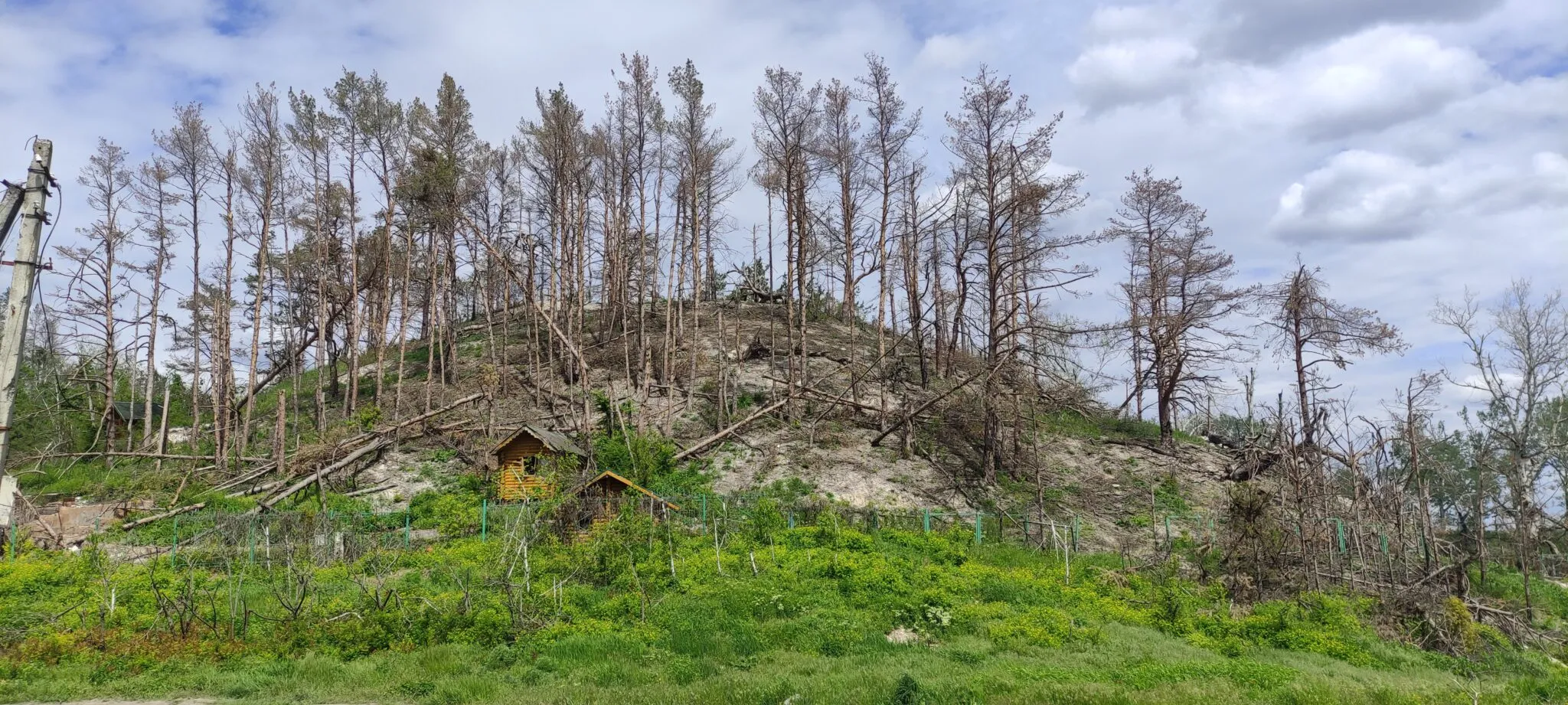Russia has completely destroyed over 60,000 hectares of forests worth at least 14 billion hryvnias ($360 mn) in the occupied territories since the beginning of the full-scale invasion, Independent anti-corruption center NGL.media showed in its investigation.
According to Ukrainian intelligence, on 4 March, less than ten days after the invasion of Ukraine, Russian Defense Minister Sergei Shoigu appealed to Putin, requesting permission to cut down forests without any restrictions for the benefit of the Russian occupying army. According to Shoigu, the timber was intended for use in "fortification structures" as well as for sale. Putin granted the permission.
NGL.media, using satellite imagery, established that during the two years of the war, the Russians had destroyed over 60,000 hectares of forests in the territories they occupied.
The total value of the lost forest exceeds 14 billion hryvnias ($360 mn) – these are only direct losses, in particular, the cost of the timber that could have been obtained from these more than 60,000 hectares. “It doesn’t include the environmental consequences, the elimination of which could be much more expensive," the investigation states.
Among the natural areas that suffered the most in the Donetsk Oblast is the Svyati Hory National Nature Park in the Kramatorsk and Bakhmut districts. Since the beginning of the Russian invasion, combat actions have taken place in this area, destroying 80% of the park.
"We visited the de-occupied territory of the National Park in May 2023. Almost the entire forest was mined there. The forest is severely damaged or even destroyed in some places. It is a shame that the ecosystems of pine forests on the chalk, which are unique and protected by the Berne Convention, have suffered the most. There are no other ecosystems like this in Europe," Ivan Moisienko, Head of the Department of Botany at Kherson State University, told NGL.media.
The Russians are actively logging in the Luhansk Oblast, where forests covered only 11% of the territory before the war. In the predominantly steppe region of Luhansk, forests have a very important function – they protect against sandstorms, retain moisture, and stop soil erosion.
Additionally, about 40-45% of the forest areas in the Kharkiv Oblast are mined or damaged by fires.
In 2022, during the Russian occupation of the Kherson Oblast, which is one of the least (5%) forested regions of Ukraine, a significant part of the forests was affected by fires, shelling, and logging.
The forests of the Kherson Oblast were also seriously affected by the Kakhovka Hydroelectric Power Plant explosion in June 2023. At that time, almost 55,000 hectares of forest on the left bank of the Dnieper River were flooded.
According to experts, the loss of forests in the steppe zone will have long-term consequences for preserving biodiversity, water resources, and climate regulation. It will also cause the deterioration of air quality, increased risk of rivers and ponds drying up, and increased risk of fires.
Russia is one of the largest exporters of wood in the world. Before 2022, the largest buyers of Russian wood were China, Uzbekistan, Kazakhstan, Finland, and Germany. After Russia's invasion of Ukraine, EU countries banned the import of Russian wood, leading to a 35% drop in overall Russian wood exports. Russia explained this decline as an "internal decision unrelated to the EU's actions."
The main buyers of Russian wood are Türkiye, the UAE, Kyrgyzstan, Iran, South Korea, and China.
"If Ukrainian wood from temporarily occupied territories ends up with them, it compromises the entire market. Those who buy from Russians can no longer be sure that they have not acquired illegally sourced wood," explains Dmytro Karabchuk, founder and executive director of the NGO "Forest Initiatives and Society."
Read also:
- Ukraine recorded over 265 Russian environmental crimes, including 14 cases of ecocide
- Ukraine launches investigation into ecocide after Nova Kakhovka attack
- EU reportedly agrees on extending free trade with Ukraine with more limitations
- Ukrainian optimism is high but waning: 88% still believe in victory over Russia, down from 94% in 2023





